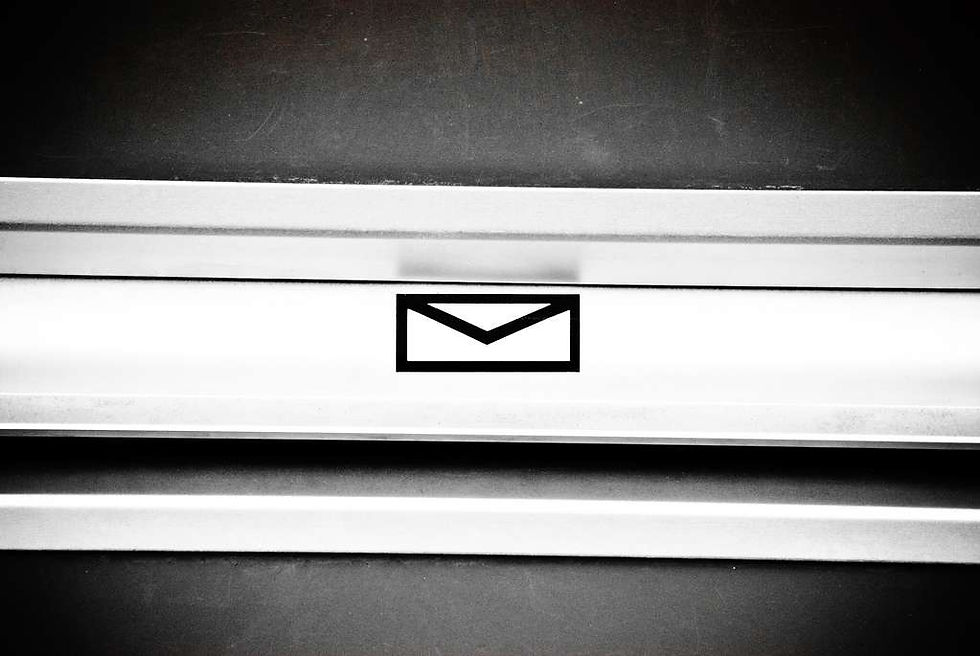Top-Secret Material Among Hillary's 'Lost' Emails
- OurStudio

- Dec 16, 2015
- 4 min read

Damien [Phototrend.fr]/Flickr
While the country has been fixated on Donald Trump's tormenting his Republican primary opponents and deeply concerned about the government's efforts to identify any confederates in the San Bernardino, California, killings, a team of federal prosecutors and FBI agents continues to examine Hillary Clinton's tenure as secretary of state in order to determine whether she committed any crimes and, if so, whether there is sufficient evidence to prove her guilt beyond a reasonable doubt.
What began as an innocent Freedom of Information Act (FOIA) request by Judicial Watch, a D.C.-based public advocacy group promoting transparency in the executive branch, has now become a full criminal investigation, with Clinton as the likely target.
The basic facts are well-known, but the revealed nuances are important, as well. When the State Department responded to the Judicial Watch FOIA request by telling Judicial Watch that it had no emails from Clinton, Judicial Watch filed a lawsuit. When the State Department made the same representation to the court—as incredible as it seemed at the time—the judge accepted that representation, and the case was dismissed.
Then The New York Times revealed that Clinton used a private email server instead of the government's server for all of her work-related and personal emails during her four years as secretary of state. After that, the Judicial Watch FOIA case was reinstated, and then the judge in the case demanded of State that it produce Clinton's emails.
When Judicial Watch expressed frustration to the judge about the pace at which it was getting emails, the judge ordered Clinton, "under penalty of perjury," to certify that she had surrendered all her governmental emails to the State Department.
Eventually, Clinton did certify to the court that she did surrender all of her governmental emails to the State Department. She did so by sending paper copies of selected emails, because she had wiped clean her server. She acknowledged that she decided which emails were personal and which were selected as governmental and returned the governmental ones to the State Department. She has denied steadfastly and consistently that she ever sent or received any materials marked "classified" while secretary of state using her private server.
All of her behavior has triggered the FBI investigation because she may have committed serious federal crimes. For example, it is a crime to steal federal property. What did she steal? By diverting to her own venue the digital metadata that accompany all emails—metadata that, when attached to the work-related emails of a government employee, belong to the government—she stole that data. The metadata do not appear on her paper copies—hence the argument that she stole and destroyed the government-owned metadata.
This is particularly troublesome for her present political ambitions because of a federal statute that disqualifies from public office all who have stolen federal property. (She is probably already barred from public office—though this was not prominently raised when she entered the U.S. Senate or the Department of State—because of the china, silverware, and furniture that she and her husband took from the White House in January 2001.)
Clinton may also have committed espionage by failing to secure the government secrets entrusted to her. She did that by diverting those secrets to an unprotected, nongovernmental venue—her own server—and again by emailing those secrets to other unprotected and nongovernmental venues. The reason she can deny sending or receiving anything marked "classified" is that protected government secrets are not marked "classified."
So her statement, though technically true, is highly misleading. The governmental designations of protected secrets are "confidential," "secret," and "top secret"—not "classified." State Department investigators have found 999 emails sent or received by Clinton in at least one of those three categories of protected secrets.
Back when Clinton became secretary of state, on her first day in office, she had an hour-long FBI briefing on the proper and lawfully required care of government secrets. She signed a statement, under penalty of perjury, acknowledging that she knew the law and that it is the content of emails, not any stamped markings, that makes them secret.
Earlier this week, my Fox News colleagues confirmed the certain presence of top-secret materials among the 999 emails. Intelligence from foreign sources or about foreign governments is always top-secret, whether designated as such or not. And she knows that.
As well, she may have committed perjury in the FOIA case. When the House Select Committee on Benghazi, in its investigation of her role in the deaths of the U.S. ambassador to Libya and three other Americans, gathered emails, it found emails she did not surrender to the State Department.
Last week, the State Department released emails that give the FBI more areas to investigate. These emails may show a pattern of official behavior by Clinton designed to benefit the financial interests of her family's foundation, her husband, and her son-in-law. Moreover, the FBI knows of a treasure-trove of documents that may demonstrate that the Clinton Foundation skirted the law and illegally raised and spent contributions.
Two months ago, a group of FBI agents sat around a conference table and reviewed the evidence gathered thus far. Each agent was given the opportunity to make or detract from the case for moving forward. At the end of the meeting, it was the consensus of the group to pursue a criminal investigation. And Clinton is the likely target.
COPYRIGHT 2015 ANDREW P. NAPOLITANO | DISTRIBUTED BY CREATORS.COM




Comments